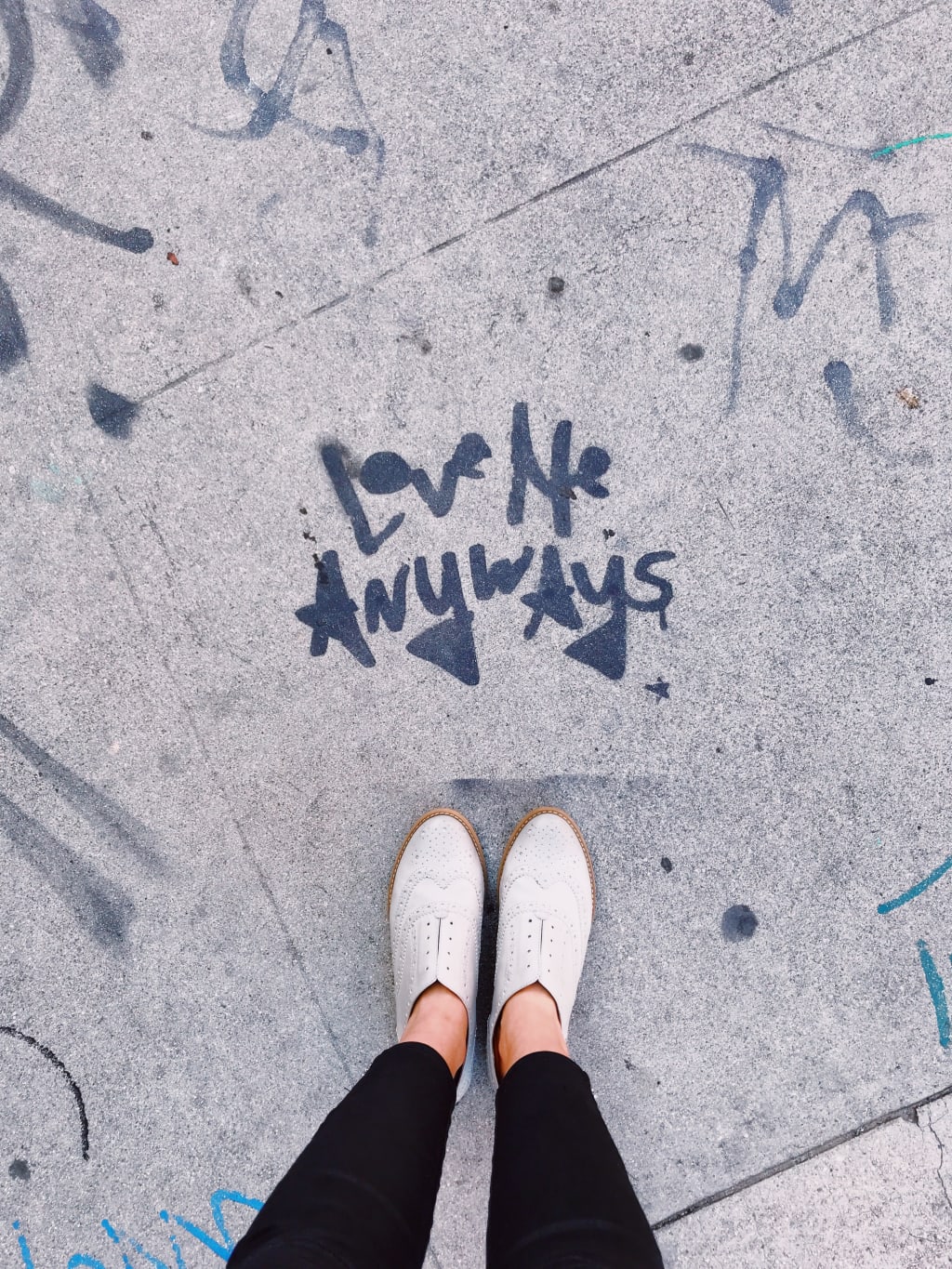
Like many people who struggle with mental health, I have battles with self-esteem, depression, and anxiety. Something that always sucks me in are lists of ways to be.
“Click here for a list of 10 Self-Care things you can do for this winter!”
“Do you like lists of 10 things you can do? HOW ABOUT 11? We like to go just one step further!”
I think the appeal of these lists is that they promise something I don’t have, and sometimes feel like I may never have: inner peace, improvement, a happy life. There are days that I could do all 10 of those things and achieve nothing toward feeling better, like taking that “treat yourself to a pumpkin spice latte *giggles*” and pouring it into a black hole where it swirls in its pumpkin spiciness forever.
I have worked as a mental health professional for a little over two years now. I was initially hired as a peer support, or a person with lived experience who uses the story of their recovery journey to help others earlier in recovery. I didn't know it when I started, but this position would give me two main gifts: a desire to “walk the talk,” and greater self-compassion.
When I say “walk the talk,” I mean that becoming a peer support and a mentor made me feel a responsibility to live as I would encourage the people we served to live. In my job, I worked with people who were struggling with mental health conditions – often caused or exacerbated by more straining life situations – and tried to help them identify coping skills and connect to resources they had at their disposal. I had conversations with them about their vision for their lives, helped them take steps toward their goals, and made them aware of resources they could use.
The truth is, the sort of self-care I have always found the hardest, and which many of our clients did as well, was what took effort for me to do, and I often neglected it because I didn’t care how I felt. Often, the self-care I needed most related to my activities of daily living and taking steps to manage symptoms I had.
Activities of daily living is a phrase that feels more clinical than it is. It's everything you do when you get up and get ready for the day from the bed to the door, things like: getting out of bed on time, going to the bathroom and doing your hygiene and grooming activities, getting dressed, having a nutritious breakfast, and doing what you need to do throughout the day. For someone who struggles with these areas, premade self-care lists may not be personal enough to help.
What I learned from my job was actually a technique to trick myself into showing compassion for the person I felt the least amount of compassion for: myself. I found myself imagining the people I worked with and thinking to myself, “If she was going through this situation, I would encourage her to reach out to her therapist. I’m going to make an appointment with one this week.” Or “If he was feeling this kind of stress, I would ask him what he has done in the past that was helpful. What have I done in the past that helped me?”
Does that mean that those pre-packaged self-care lists can’t serve a purpose?
Not at all. If those articles and lists help inspire you or you feel like you use them or gain ideas from them, that's wonderful.
Knowing tools you can use gives you power to use them, even if you choose not to.
If the suggestions on those articles and lists don’t feel very compelling or inspiring to you, it's probably because it's not a personal self-care strategy. In Wellness Recovery Action Planning, created by Mary Ellen Copeland, people are encouraged to make a list of their own Wellness Tools. (Yes, WRAP is one of my tools. Could you tell?)
You are the expert on your experience. No one will ever spend more time with you than you. Your insight into yourself, your experiences and feelings, your intuition into what you need -- those matter.
You can always involve a supporter. A plan that comes from your personal life experiences and knowledge of who you are individually will likely be more personal and powerful for you than a stock list article made by someone else.
What to Consider When Making a Self-Care Plan
- What are things that make you feel better, or keep you from feeling worse, when you aren’t feeling well? Note: feeling unwell can be emotional, physical, or both.
- Sometimes we have activities, like watching YouTube videos or gaming, that help as distractions when used moderately but can be unhealthy when overused. What are your limitations for activities like these to ensure they're truly good for your care?
- If you've had therapy, what specific techniques have you learned in treatment for your personal struggles that you could utilize?
- What are things you can do away from home, such as if you found yourself feeling anxious in public or away from your belongings, that could comfort you if you felt stressed? What are some tools or techniques you could use discreetly if you wanted to?
- What wellness tools could you use for free or at low cost if you needed to?
- If you don't know any specific techniques or tools that you like for managing your emotions, anxiety, or other conditions you find yourself struggling with, where could you learn more? Who could you ask?
Identifying self-care tools means that you will never have to face another bad day without being aware of some tools or actions you can use to show kindness to yourself. I can’t promise you that you will never have another bad day, but knowing actions you can take, at the very least, gives you the option of doing them in that moment. The more you use and make a habit of intentionally using self-care tools, the more they will come to mind when you need them.
I write from the perspective of a mental health client and professional. Check out my article What I Wish I'd Known About Diagnosis for things I'd have wanted someone to tell me when I first received a mental health diagnosis.





Comments
There are no comments for this story
Be the first to respond and start the conversation.